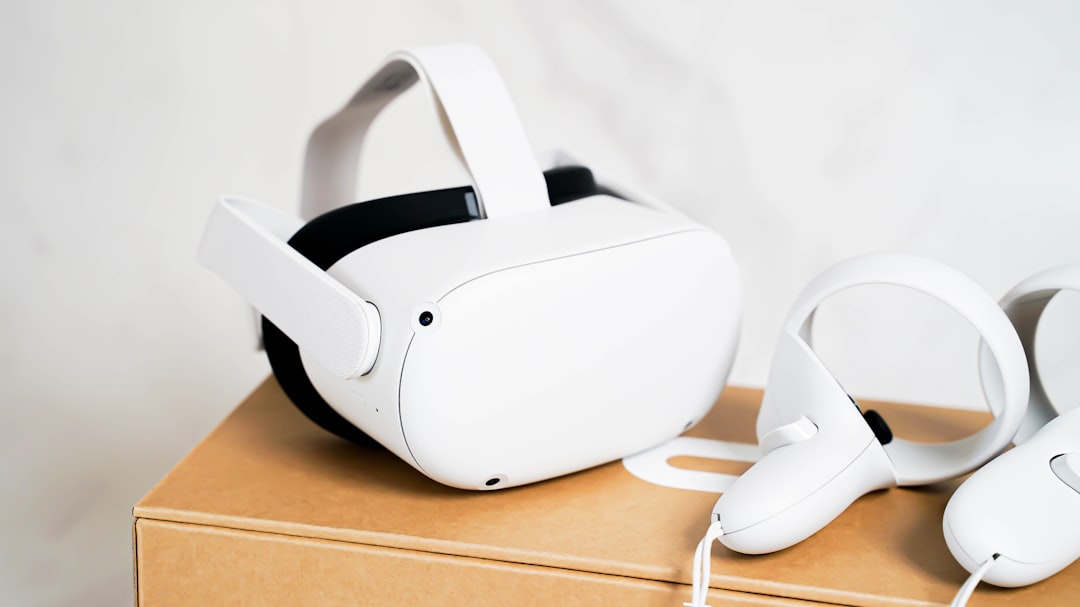The concept of the metaverse has gained significant traction in recent years, particularly with Facebook’s rebranding to Meta in 2021. This shift signaled a commitment to building a virtual universe where users can interact, socialize, and engage in various activities through immersive digital experiences. The Facebook Metaverse aims to create a seamless blend of physical and digital realities, allowing individuals to connect in ways that transcend geographical boundaries.
By leveraging advanced technologies such as virtual reality (VR), augmented reality (AR), and artificial intelligence (AI), Meta envisions a platform where users can not only communicate but also collaborate, play, and explore together in a shared digital space. The metaverse is not merely an extension of social media; it represents a paradigm shift in how we perceive and engage with online interactions. In this new environment, users can create avatars that reflect their identities, participate in virtual events, and even conduct business meetings in immersive settings.
The potential for social interaction within the metaverse is vast, as it offers a more engaging and interactive experience compared to traditional social media platforms. As we delve deeper into the implications of the Facebook Metaverse, it becomes essential to explore its impact on social interaction, the evolution of networking, and the role of emerging technologies in shaping our virtual experiences.
Key Takeaways
- The Facebook Metaverse is a virtual reality space where users can interact and engage in various activities.
- The Metaverse has the potential to revolutionize social interaction by creating immersive and interactive experiences.
- Virtual reality is reshaping social networking by providing a more immersive and personalized experience for users.
- Artificial intelligence plays a crucial role in shaping social interactions by personalizing content and enhancing user experiences.
- The Facebook Metaverse presents both opportunities and challenges, including new ways to connect and potential privacy and security concerns.
The Impact of the Metaverse on Social Interaction
The Facebook Metaverse is poised to revolutionize social interaction by providing users with a more immersive and engaging platform for communication.
Users can engage with one another through their avatars, experiencing a sense of presence that is often lacking in traditional online communication.
This heightened sense of connection can foster deeper relationships, as individuals can share experiences in a more tangible way, whether through attending virtual concerts or participating in collaborative projects. Moreover, the metaverse has the potential to democratize social interaction by breaking down barriers related to distance and accessibility. Individuals from diverse backgrounds can come together in shared virtual spaces, enabling cross-cultural exchanges that may not be possible in the physical world.
For instance, a user in New York can attend a virtual art exhibition hosted by an artist in Tokyo, allowing for a rich exchange of ideas and perspectives. This global connectivity can lead to the formation of new communities and networks that transcend traditional social boundaries, ultimately enriching the social fabric of the metaverse.
Virtual Reality and the Evolution of Social Networking

Virtual reality serves as a cornerstone of the Facebook Metaverse, fundamentally altering the landscape of social networking. By immersing users in a 3D environment, VR technology enables a level of interaction that goes beyond mere text or video exchanges. Users can navigate virtual spaces, interact with objects, and engage with others in ways that mimic real-life experiences.
This evolution marks a significant departure from traditional social networking platforms, where interactions are often superficial and lack the depth found in face-to-face communication. The integration of VR into social networking also opens up new avenues for creativity and self-expression. Users can design their virtual environments, curate their avatars, and participate in activities that reflect their interests and passions.
For example, a user passionate about gaming can create a virtual gaming lounge where friends can gather to play together, while another user interested in art can host virtual gallery exhibitions showcasing their work. This level of customization fosters a sense of ownership and belonging within the metaverse, encouraging users to invest time and effort into building their digital identities.
The Role of Artificial Intelligence in Shaping Social Interactions
| Metrics | Data |
|---|---|
| Number of AI-powered social interaction platforms | 50 |
| Percentage of people using AI chatbots for social interactions | 30% |
| Impact of AI on reducing social interaction barriers | 40% |
| Number of research studies on AI and social interactions | 100 |
Artificial intelligence plays a pivotal role in enhancing social interactions within the Facebook Metaverse. AI algorithms can analyze user behavior and preferences to create personalized experiences that cater to individual needs. For instance, AI-driven recommendations can suggest virtual events or communities based on users’ interests, facilitating connections with like-minded individuals.
This tailored approach not only enhances user engagement but also fosters meaningful interactions by bringing people together around shared passions. Furthermore, AI can facilitate real-time language translation within the metaverse, breaking down language barriers that often hinder global communication. Imagine attending a virtual conference where participants speak different languages; AI-powered translation tools could enable seamless conversations among attendees from diverse linguistic backgrounds.
This capability not only enriches the user experience but also promotes inclusivity within the metaverse, allowing individuals from various cultures to connect and collaborate without limitations.
Opportunities and Challenges in the Facebook Metaverse
The Facebook Metaverse presents numerous opportunities for innovation and growth across various sectors. Businesses can leverage this platform to create immersive marketing campaigns that engage consumers in novel ways. For example, brands can host virtual product launches or interactive experiences that allow users to explore their offerings in a 3D environment.
This level of engagement can lead to increased brand loyalty and customer satisfaction as consumers feel more connected to the products they purchase. However, alongside these opportunities come significant challenges that must be addressed for the metaverse to thrive. Privacy concerns are paramount, as users may be hesitant to share personal information in an environment where data collection is prevalent.
Ensuring robust data protection measures will be crucial in building trust among users. Additionally, issues related to digital equity must be considered; not everyone has access to high-speed internet or advanced VR equipment, which could create disparities in who can fully participate in the metaverse experience.
Ethical Considerations in the Virtual Social Space

As the Facebook Metaverse evolves, ethical considerations surrounding user behavior and content moderation become increasingly important. The anonymity afforded by avatars may lead some individuals to engage in harmful or disruptive behavior that they might avoid in real life. Establishing clear guidelines for acceptable conduct within the metaverse will be essential to fostering a safe and respectful environment for all users.
This includes addressing issues such as harassment, hate speech, and misinformation that can proliferate in online spaces. Moreover, the question of ownership and intellectual property rights within the metaverse raises complex ethical dilemmas. As users create content—be it art, music, or virtual environments—determining who holds the rights to these creations becomes crucial.
Companies like Meta must navigate these challenges carefully to ensure that creators are fairly compensated for their work while also protecting their intellectual property from unauthorized use.
The Future of Communication and Connection in the Metaverse
Looking ahead, the future of communication and connection within the Facebook Metaverse holds immense potential for transformation. As technology continues to advance, we may witness even more sophisticated forms of interaction that blur the lines between physical and digital realities. For instance, advancements in haptic feedback technology could allow users to experience tactile sensations while interacting with virtual objects or avatars, further enhancing immersion and realism.
Additionally, as more individuals embrace remote work and digital collaboration, the metaverse could become a central hub for professional networking and teamwork. Virtual offices equipped with collaborative tools could facilitate brainstorming sessions and project management in ways that traditional video conferencing cannot replicate. This shift could redefine workplace dynamics and foster a culture of innovation as teams from around the world come together in shared virtual spaces.
As we stand on the brink of this new frontier of social interaction within the Facebook Metaverse, it is clear that we are entering an era marked by unprecedented opportunities for connection and collaboration. The integration of virtual reality and artificial intelligence promises to reshape how we communicate and engage with one another on a global scale. However, navigating this complex landscape will require careful consideration of ethical implications, privacy concerns, and equitable access for all users.
The journey into the metaverse is just beginning; as we explore its vast potential, it is essential to remain vigilant about fostering an inclusive environment that prioritizes user safety and respect.
Facebook’s recent announcement about their plans to create a metaverse has sparked a lot of interest and speculation. One interesting article that delves into the psychological implications of the metaverse is “If We Asked Sigmund Freud About the Metaverse, What Would He Say?” This article explores how the metaverse could impact our sense of self and identity, drawing parallels to Freudian theories of the unconscious mind. It’s a thought-provoking read that offers a unique perspective on the potential implications of this emerging technology.
FAQs
What is the Facebook Metaverse?
The Facebook Metaverse is a virtual reality space where users can interact with each other and digital objects in a computer-generated environment. It is a concept that aims to create a shared, immersive virtual world that blurs the line between the physical and digital realms.
How is Facebook involved in the Metaverse?
Facebook, now known as Meta Platforms, Inc., is heavily involved in the development of the Metaverse. The company has announced plans to invest heavily in virtual and augmented reality technologies to build the infrastructure for the Metaverse.
What are the potential applications of the Facebook Metaverse?
The Facebook Metaverse has the potential to be used for a wide range of applications, including social interactions, gaming, virtual meetings, education, and virtual commerce. It could also revolutionize the way people work, socialize, and consume content online.
What are some concerns surrounding the Facebook Metaverse?
Some concerns surrounding the Facebook Metaverse include issues related to privacy, data security, digital addiction, and the potential for creating further divides between those who have access to the technology and those who do not. There are also ethical considerations regarding the impact of virtual reality on mental health and social interactions.
How is the Facebook Metaverse different from current virtual reality experiences?
The Facebook Metaverse aims to create a seamless, interconnected virtual world that goes beyond the current fragmented virtual reality experiences. It seeks to create a unified digital space where users can move between different virtual environments and interact with others in a more immersive and natural way.

Leave a Reply